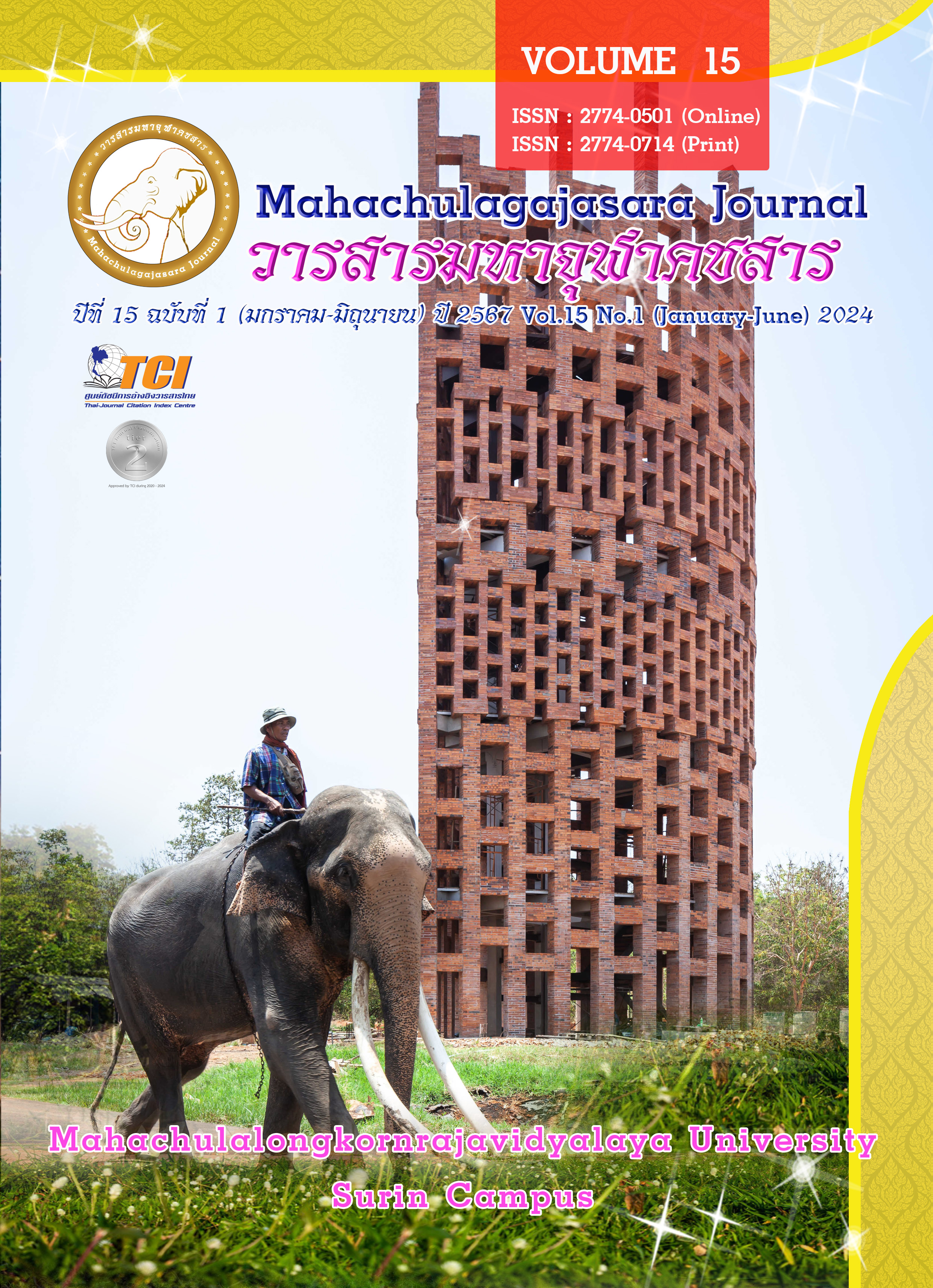A Survey of Strategies of English Vocabulary Learning: A Case Study
คำสำคัญ:
Vocabulary acquisition; , Vocabulary learning strategies; , Thai university studentsบทคัดย่อ
Learning vocabulary is one of the best ways to master a target language. While language learners employ a variety of strategies, this article focuses on how Thai university students develop their English vocabulary skills. We investigated their vocabulary learning strategies through a voluntary survey conducted in October 2023. Of the 59 participants, 26 students willingly shared their approaches to learning English vocabulary in response to the prompt "How do you learn English vocabulary?" This research provided a deeper understanding of the diverse methods employed by Thai students, encompassing both traditional and modern approaches. Recommendations for future studies and classroom teaching are also provided.
Downloads
เอกสารอ้างอิง
Boonnoon, S. (2019). Vocabulary learning strategies employed by Thai university students across four academic profiles. Theory and Practice in Language Studies, 9(8), 902-910. doi:10.17507/tpls.0908.02
Brown, H. D. (2007). Principles of Language Learning and Teaching. Pearson Education.
Chumworatayee, T., & Pitakpong, T. (2017). The relationships between the use of vocabulary learning strategies and their usefulness as perceived by English major students in a Thai university. LEARN Journal: Language Education and Acquisition Research Network Journal, 10(2), 155-177.
Cui, J. (2023, December 3). There’s a gap between AI talk and businesses actually using it. NBC News. Retrieved from https://www.nbcnews.com/data-graphics/wide-gap-ais-hype-use-business-rcna127210
Dakhie, M. A. (2017). Factors affecting the quality of English language teaching in Preparatory Year, University of Jeddah. English Language Teaching, 10(7), 43-60.
Ghalebi, R., Sadighi, F., & Bagheri, M. S. (2020). Vocabulary learning strategies: A comparative study of EFL learners. Cogent Psychology, 7, 1824306. https://doi.org/10.1080/23311 908.2020.1824306
Janebi Enayat, M., and Derakhshan, A. (2021). Vocabulary size and depth as predictors of second language speaking ability. System 99, 102521.
Kılıç, M. (2019). Vocabulary knowledge as a predictor of performance in writing and speaking: A case of Turkish EFL learners. PASAA Journal of Language Teaching and Learning in Thailand, 57(1), 133-164.
Laufer, B. (1998). The development of passive and active vocabulary in a second language: Same or different? Applied Linguistics, 12, 255-271.
Mungkonwong, P., & Wudthayagorn, J. (2017). An investigation of vocabulary size of Thai freshmen and its relationship to years of English study. LEARN Journal: Language Education and Acquisition Research Network Journal, 10(2), 1-17.
Nirattisai, S., & Chiramanee, T. (2014). Vocabulary learning strategies of Thai university students and its relationship to vocabulary size. International Journal of English Language Education, 2(1), 273-287. doi:10.5296/ijele.v2i1.5366
Nation, I. S. P. (2001). Learning Vocabulary in Another Language. Cambridge University Press.
. (1990). Teaching and Learning Vocabulary. New York: Newbury House.
Nation, P. & Meara, P. (2002) Vocabulary. In N. Schmitt (ed.), An Introduction to Applied Linguistics Edward Arnold, 35-54.
Qian, D. (1999). Assessing the roles of depth and breadth of vocabulary knowledge in reading comprehension. Canadian Modern Language Review, 56(2), 282-308. https://doi.org/ 10.3138/cmlr.56.2.282
Qian, D. D., & Lin, L. H. F. (2020). The relationship between vocabulary knowledge and language proficiency. In S. Webb (Ed.), The Routledge Handbook of vocabulary studies (pp. 66 - 80). Taylor & Francis.
Schmitt, N., (1997). Vocabulary learning strategies. In N. Schmitt, AND M. McCarthy, eds. Vocabulary: Description, Acquisition and Pedagogy. Cambridge University Press, 199-227.
Seffa, S. (2015). The effect of vocabulary knowledge on EFL oral competence. IOSR Journal of Research & Method in Education, 5(6), 8-13.
Shafiee, S., & Khavaran, S. R. (2017). Effects of cooperative learning on vocabulary achievement of reflective/impulsive Iranian EFL learners. International Journal of Foreign Language Teaching & Research,5(17), 11–24.
Thiendathong, P., & Sukying, A. (2021). Vocabulary Learning Strategies Used by Thai High School Students in Science, Language, and English Programs. Arab World English Journal, 12 (2) 306 -317 DOI: https://dx.doi.org/10.24093/awej/vol12no2.21
Thornbury, S. (2002). How to Teach Vocabulary. Pearson Education.
ดาวน์โหลด
เผยแพร่แล้ว
รูปแบบการอ้างอิง
ฉบับ
ประเภทบทความ
สัญญาอนุญาต
ลิขสิทธิ์ (c) 2024 วารสารมหาจุฬาคชสาร

อนุญาตภายใต้เงื่อนไข Creative Commons Attribution-NonCommercial-NoDerivatives 4.0 International License.





